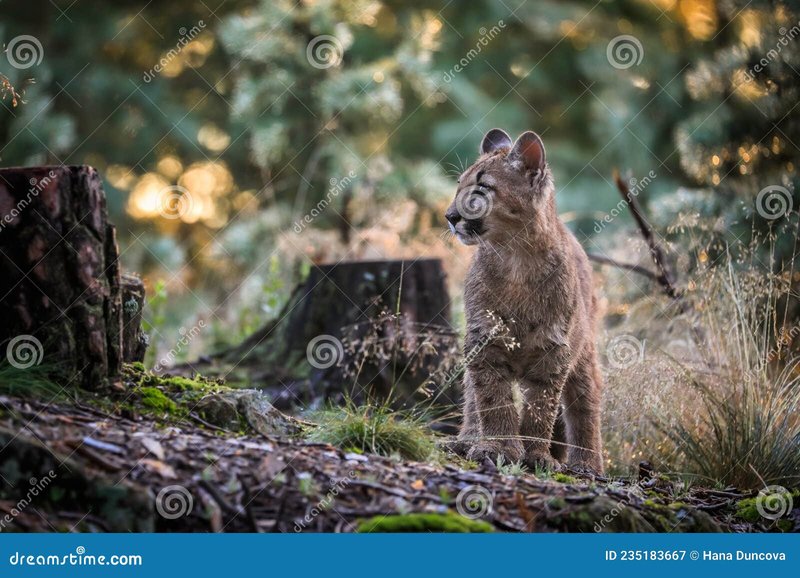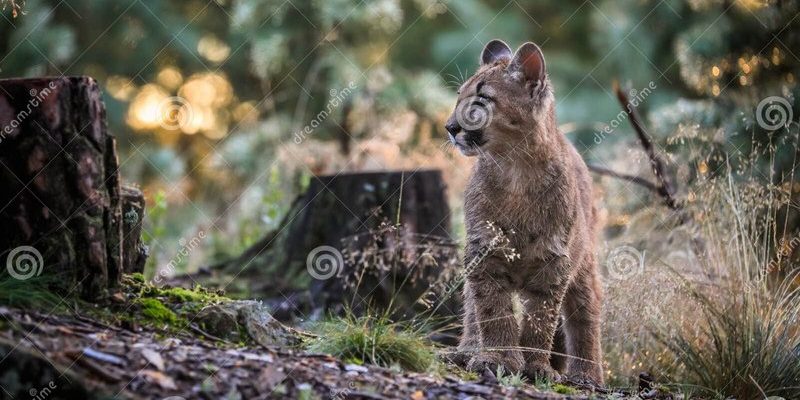
Let’s take a deeper dive into the world of cougars. These big cats, also known as mountain lions or pumas, are not just solitary hunters. They embody a crucial link in the chain of life, influencing the populations of other species and the health of the environment. You might be wondering how they achieve this, so I’ll guide you through their role, the challenges they face, and why they’re so important to the ecosystems they inhabit.
What Are Cougars?
Before we delve into their ecosystem role, let’s clarify what cougars are. Cougars (Puma concolor) belong to the Felidae family, which includes all big cats. They are known for their impressive adaptability and can be found across a wide range of habitats, from forests to deserts. Adult cougars can weigh between 80 to 220 pounds, making them one of North America’s largest cats.
These cats have a keen sense of hearing and sight, allowing them to hunt effectively, often at dawn or dusk when their prey is most active. Cougars are solitary animals; they prefer to roam vast territories, sometimes covering over 100 square miles. This independence is key to their role in the ecosystem, as it allows them to control various prey populations effectively.
The Cougar as a Top Predator
Cougars are classified as apex predators, meaning they are at the top of their food chain with few natural enemies. Their primary role is to regulate herbivore populations, such as deer and elk. Here’s the thing: when cougars are present in an ecosystem, they help keep the populations of these large herbivores in check.
Why is that important? Overpopulation of herbivores can lead to overgrazing, damaging the vegetation and altering the landscape. With fewer grazing animals, plant life can flourish, which not only supports other species but also helps stabilize the soil and improve water retention.
So, by managing these herbivore numbers, cougars contribute to the overall health of their habitats, promoting biodiversity and creating a more resilient ecosystem.
Impact on Prey Species
Let’s dive a little deeper into the effects cougars have on their prey. Imagine you’re in a crowded room where everyone is trying to speak at once. Without a leader to guide the conversation, it becomes chaotic. In nature, cougars act as that leader. By hunting weaker or older animals, they help weed out sick individuals and maintain a strong, healthy population of prey species.
For example, when cougars hunt deer, they’re not just taking down one animal; they’re impacting the herd as a whole. They can help control the spread of diseases that might affect the entire population. Additionally, by preying on the most susceptible deer, cougars ensure that the strongest and healthiest animals survive and reproduce.
Cougars also create what’s known as a “trophic cascade.” This term describes how predators can impact not just their immediate prey but also the vegetation that thrives in the ecosystem. Healthy herbivore populations help maintain a balance where plant life can flourish, supporting countless other species, from insects to birds.
Ecological Balance and Biodiversity
One of the most significant roles cougars play is supporting biodiversity. Biodiversity refers to the variety of life found in a particular ecosystem. Imagine a colorful tapestry where each thread represents a different species—when cougars are present, they help weave this tapestry tighter.
By controlling herbivore populations, cougars maintain a balance that allows various plants and animals to thrive. This balance is vital for maintaining healthy ecosystems, landscapes, and even climate regulation. Areas with diverse species are often more resilient to changes like diseases, climate shifts, or human impact.
Cougars also indirectly support smaller predators and scavengers. For instance, when a cougar brings down prey, other animals like foxes, ravens, and even smaller cats benefit by scavenging the remains. It’s like having a buffet where not just the top eaters get fed.
The Effects of Urbanization and Human Encroachment
Here’s the thing: as humans expand their territories, cougars face increasing challenges. Urban development, agriculture, and road construction can fragment their habitats, making it difficult for them to hunt and migrate. This disruption can lead to a decline in cougar populations, which in turn affects the ecological balance.
When cougars move into urban areas searching for food, conflicts can arise. They might be seen as threats to livestock or pets, leading to negative perceptions and sometimes harm to these animals. Education is key here—understanding the role cougars play in our ecosystems can help foster coexistence.
Conservation efforts are crucial in ensuring cougars thrive in their natural habitats. These might include wildlife corridors that connect fragmented habitats, allowing cougars to roam freely and maintain healthy populations.
Conservation Efforts and Future of Cougars
Conservationists and wildlife organizations are working hard to protect cougars and the ecosystems they inhabit. Here are some strategies being employed:
- Habitat Restoration: Restoring natural habitats can help restore the balance cougars need to thrive.
- Public Education: Raising awareness about the importance of cougars in the ecosystem is vital for reducing human-wildlife conflicts.
- Wildlife Corridors: Creating safe pathways for wildlife can help cougars migrate and hunt effectively.
These efforts are not just about protecting cougars; they’re about maintaining the health of entire ecosystems. Preserving cougars means preserving the intricate dance of life that relies on them.
So, why should you care about cougars? It goes beyond just loving these magnificent creatures. By safeguarding cougars, we’re also protecting the ecosystems that provide us with clean air, water, and food. Cougars maintain a balance in nature that ultimately benefits us all.
Every step we take towards understanding and conserving cougars can help ensure a healthier planet. Every brush stroke in the tapestry of life counts. By working together, we can support not only cougars but the incredible ecosystems they help sustain.

